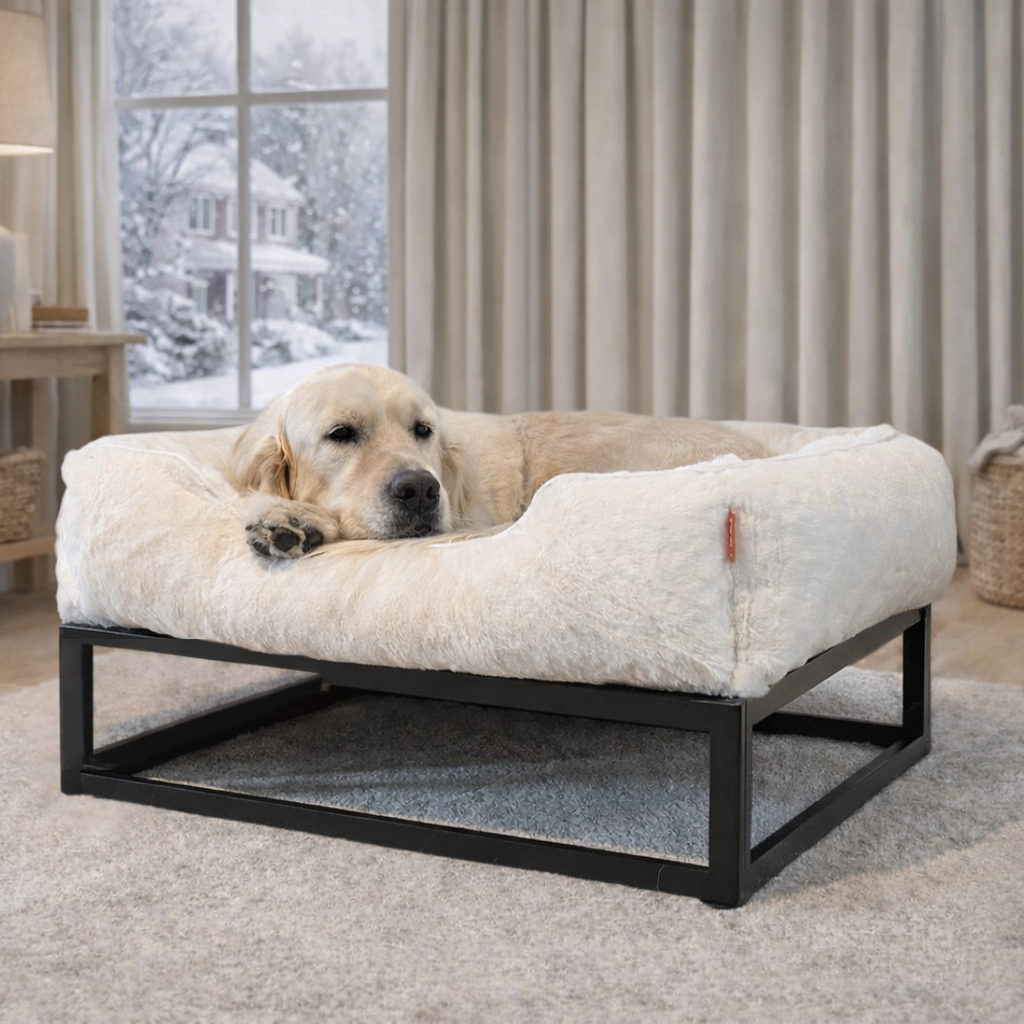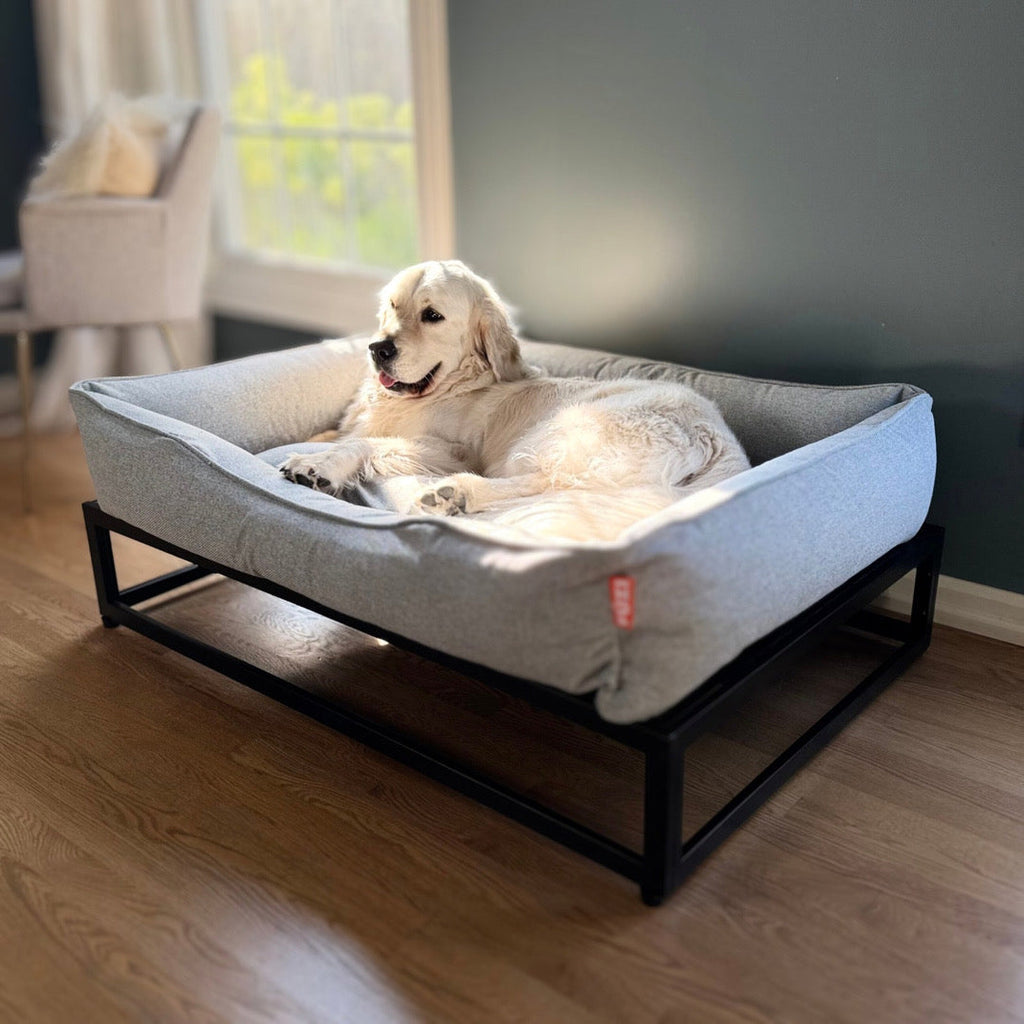Why Dogs Are Scared of Fireworks and How to Help Them Cope
Introduction
Meet Boris and Sadie, my two fur babies with very different personalities. Boris, big happy and nonchalant, couldn’t care less about fireworks. He lounges around as if nothing’s happening, even during the loudest displays. Sadie, frenzied herder, on the other hand, is the exact opposite. At the first sound of a firework in the distance, she leaps into my lap, quivering and petrified. If you’ve ever experienced “a Sadie”, you know how challenging it can be to comfort a scared dog. Let’s dive into the relationship between fireworks and dogs and how we can help them cope during these stressful times.
Why Are Dogs Scared of Fireworks?
1. Sensory Overload
Dogs have highly sensitive hearing, which means loud noises like fireworks can be overwhelming. The sudden, unpredictable sounds are much louder to dogs than to humans, leading to fear and anxiety.
2. Unpredictability
Unlike thunderstorms, which build up gradually, fireworks are abrupt and irregular. This unpredictability makes it hard for dogs to get accustomed to the noise, increasing their stress levels.
3. Lack of Control
During fireworks displays, dogs have no control over the environment or the source of the noise. This feeling of helplessness can exacerbate their fear and lead to panic.
4. Association with Danger
Dogs may associate the loud noises and bright flashes of fireworks with danger. This instinctual response is a survival mechanism, making them more likely to react fearfully.
5. Past Experiences
Negative past experiences with fireworks can also contribute to a dog’s fear. If a dog has previously been scared or hurt during fireworks, they may have lasting associations with the experience.
Signs of Firework-Related Anxiety in Dogs
1. Trembling or Shaking
Visible shaking is a common sign of fear in dogs. Sadie’s entire body trembles at the first pop of a firework.
2. Excessive Barking
Dogs may bark more than usual in response to the loud noises.
3. Hiding
Dogs often seek out hiding places when they feel scared, such as under furniture or in closets. I recently found Sadie in a little corner of our half bath.
4. Destructive Behavior
Chewing, digging, or scratching at doors and windows can be a dog's way of coping with stress. We’ve seen the aftermath of Sadie’s anxiety on our doorframes.
5. Pacing
Constant pacing is another sign of anxiety, as dogs try to find a way to escape the noise.
Coping Mechanisms for Dogs During Fireworks
1. Create a Safe Space
Designate a quiet, secure area in your home where your dog can retreat during fireworks. This can help them feel more protected and less exposed to the noise. Sadie appreciates a dark room next to or on a human (me).
2. Use Calming Aids
Consider using products designed to reduce anxiety in dogs, such as calming collars, pheromone diffusers, or anxiety wraps.
3. Background Noise
Playing soft music or turning on the TV can help drown out the sound of fireworks and create a more soothing environment for your dog. We usually put on animal planet – our dogs find this entertaining anytime!
4. Comforting Dog Bed
A comfortable and supportive dog bed can provide a sense of security. The soft materials and enclosed bolster style dog beds can help reduce anxiety and offer a cozy refuge. Sadie loves snuggling into her bolster style FÜZI elevated dog bed just for these occasions, and it really helps her settle down.
5. Stay Calm
Dogs often take cues from their owners, so staying calm and composed can help reassure your pet that there is no danger. If you’re relaxed, your dog is more likely to be, too.
6. Desensitization Training
Gradually exposing your dog to the sounds of fireworks in a controlled environment can help them become less sensitive to the noise over time. This should be done well in advance of any anticipated fireworks events.
Post-Fireworks Care
1. Offer Reassurance
After the fireworks have ended, offer your dog plenty of comfort and reassurance. Petting, soothing words, and treats can help them feel safe and loved.
2. Maintain Routine
Keeping a regular routine can help your dog return to normalcy more quickly. Regular feeding, walks, and playtime provide a sense of stability.
3. Monitor Behavior
Watch for any lingering signs of anxiety or stress in the days following fireworks. If your dog continues to exhibit signs of fear, consult your veterinarian for further advice.
Conclusion
Fireworks can be a source of significant distress for dogs, but with the right strategies, you can help your furry friend cope with their fear. Creating a safe space, using calming aids, and providing a comforting dog bed are all effective ways to alleviate anxiety. By understanding firework tips for dogs and offering consistent support, you can make fireworks events more manageable for your pet.
FAQs
1. Why do dogs have a stronger reaction to fireworks compared to other loud noises?
Dogs have sensitive hearing and fireworks are unpredictable and loud, making them particularly frightening.
2. Can all dogs be desensitized to the sound of fireworks?
While desensitization can help many dogs, it may not work for all. Some dogs might require additional support from a veterinarian.
3. Are there any long-term effects of firework anxiety on dogs?
Prolonged anxiety can lead to behavioral issues and health problems, so it’s important to address the fear early.
4. What should I avoid doing when my dog is scared of fireworks?
Avoid scolding or punishing your dog for their fear, as this can increase their anxiety.
5. How soon before a fireworks event should I start preparing my dog?
It's best to start preparations and desensitization training several weeks to months in advance to ensure your dog is as comfortable as possible.







